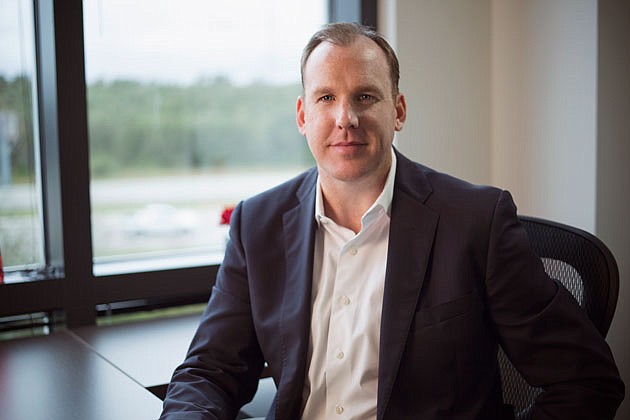- November 24, 2024
-
-
Loading

Loading

There are lots of acronyms in commercial real estate: SIOR, NAIOP, ALC, SCLS, CPM, CRE and MAI, to name but a few.
But only one is considered a veritable master's degree or doctorate within the industry, one that requires a mix of lengthy courses and work experience — the Certified Commercial Investment Member designation.
Although CCIM designations have been historically earned by only a small percentage of agents and practitioners — 6% nationwide — the title has gained in popularity in recent years throughout Florida and along the Gulf Coast.
That's because many Fortune 500 firms and high-powered real estate investment trusts will only work with brokers who have earned the CCIM lapel pin.
“The numbers in Florida are definitely going up, membership has been increasing at a double-digit rate this cycle,” says Adam Palmer, a principal and managing director with LandQwest Commercial, in Fort Myers, and the 2018 president of the CCIM Institute's Florida chapter.
“I think that's because there's a recognition out there, among Fortune 500 firms and others, that CCIM is the upper echelon of commercial real estate education.”
Statewide, about 1,000 commercial real estate agents or other practitioners hold the CCIM designation, though the institute's ranks have climbed 10% annually in the Sunshine State for each of the past three years.
The institute, part of the National Association of Realtors, also is celebrating its 50th anniversary this year. The group has been in Florida since 1974.
In all, the institute has roughly 13,000 designees nationwide.
The growth in Florida and elsewhere is extraordinary in light of the hurdles CCIM candidates face.
Until recently, when online classes began to be offered, candidates had to travel to cities where week-long CCIM “core” courses were taught, typically in large cities such as Chicago, New York or Washington, D.C.
Candidates must take seven courses to receive their designation and pass a six-hour final exam.
Candidates also must provide proof that they have completed a set number of transactions, or been involved with completed deals carrying a set dollar volume. CCIM also requires that agents must have at least two years of commercial real estate experience, in most cases, before they can start their coursework.
“Part of the process weeds out those who aren't as productive in the business,” Palmer says.
CCIM isn't inexpensive, either. Tuition for most classes is in excess of $1,000 per class, not including lodging, meals and other expenses associated with traveling to complete the coursework.
“Admittedly, it's a pricey designation to earn,” says Karl “Dee” Maret, national co-director of Coldwell Banker Commercial NRT, who is based in Tampa.
“My pathway to receiving my pin cost well over $20,000,” says Maret, who became a CCIM in 2011.
But Maret and other CCIM advocates say the cost — and the time spent — is worth it.
“I love my college, but CCIM has done more for me than my college degree in journalism,” says Maret, a former Tampa Tribune reporter.
A year after receiving his CCIM designation, Coldwell Banker offered Maret the chance to go into management, where he's advanced steadily over the past five years.
Nationwide, the institute boasts that CCIM designees earn 42% more than non-CCIM commercial brokers, and the institute's DealShare service connects agents nationwide.
But the group's pin brought intangible benefits, as well, Maret and others say.
“There has never been a question about my competency or my ability to operate in this business since receiving my CCIM designation,” Maret says. “It's not called the Ph.D. of commercial real estate by accident.”
That's what drew Jack Koehler to CCIM.
“As a young person coming into the commercial real estate business with little experience, CCIM gave me a goal to work toward,” says Koehler, an agent with Tampa-based Eshenbaugh Land Co. who received his CCIM designation late last year.
“It allowed me to prove to myself that I was making progress, and learning,” adds Koelher, 27, an Auburn University graduate who has worked with Eshenbaugh Land for more than three years.
“And I think it showed a commitment to the industry on my part, which I felt important. It's a hard-fought process, but it also gives you an immediate level of credibility.”
Palmer says he hopes to enhance that aspect of the designation during his yearlong presidency, bolster relationships with vendors and provide designees with opportunities for continued education. He also plans to work on improving CCIM Florida websites for members.
“There are a number of commercial real estate organizations out there, but CCIM is synonymous with education to a degree others aren't,” Palmer says. “If you want to stay current in the business, CCIM is the avenue to do it.”